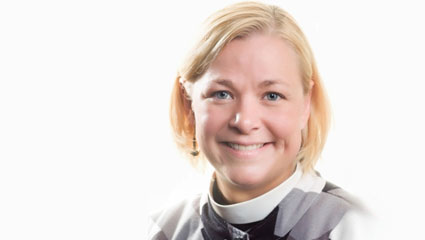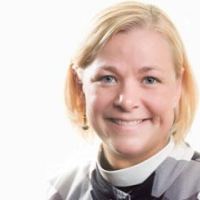For the last few years, I’ve spent a lot of time talking.
Sermons, funerals, Bible studies, Confirmation classes, hallway conversations, financial decisions, and council meetings have all requested my preparation, my interpretation, or my feedback. Even if I said very little, like in pastoral counseling sessions where the person “just needed to talk,” my few words have been important to the hearer, and I’ve been careful to say what I mean and to use words to bring strength, comfort, and healing.
The most recent and frequent words I’ve been saying are “Good-bye” and “Thank you.” My husband and I are leaving our first calls and relocating to begin a new chapter in our lives and ministries. Change can be interpreted or explained in different ways, and I’m discovering the many layers and textures of this particular experience. But, a primary lens has emerged for me as a way of understanding this transition in my life. I am going from a talking phase of life into a listening one.
Some of this is literal change. In this next phase of my vocational life, I will be a primary listener. I will be in class again as a student, where I will no longer be asked to stand up in front and talk. Instead, my job will be to read and listen to my professors and student colleagues. Even if I am asked to speak, my instinct will be to think about what I’ve heard before I say anything.
In addition, I will be serving in a part-time call in a church. My new role is different, mostly limited, and specific. I will preach less often, and will no longer handle the daily administrative decisions, which will undoubtedly change the way I speak. Also, the community itself is new for me. I know almost none of their practices or habits, let alone their stories, communal or personal.
I have a lot to learn in the coming months, but thankfully I was given some great advice by a mentor during my first call on how to make that happen: be available and be quiet. Remembering this early advice reminded me that I used to do more listening. In the first year of my call, I listened much more than I spoke. As time passed, I found ways to use my voice to bring needed change or to help others interpret what they saw and experienced, or to encourage people to use their gifts. At times, no doubt, I crossed the line from speaking too little to speaking too often.
I will certainly find times to speak during this next stage. I will still preach, do funerals, lead Bible studies, teach Confirmation classes, have hallway conversations, participate in financial decisions, and attend council meetings, even if on a limited basis. And, as a student, I eventually will be asked to speak in class, or will find I have something to contribute. But, hopefully, this time of focused listening will give me something new to say, whether in the classroom or the pulpit, and I’ll be able to use words to bring strength, comfort and healing.

